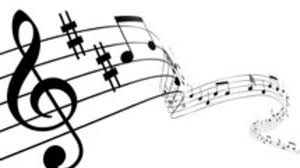song
英 [sɒŋ]
美 [sɑːŋ]
- n. 歌曲;歌唱;诗歌;鸣声
- n. (Song)人名;(泰)颂;(柬)松;(英)桑;(老)宋;(越)双;(东南亚国家华语)松
使用频率:

记忆方法
送〈song〉你一首歌
中文词源
song 歌曲,歌唱
来自 sing 的名词形式。
英语词源
- song
-
song: [OE] Song comes from a prehistoric Germanic *sanggwaz, a derivative of the same base that produced sing. Its Germanic relatives include German and Danish sang, Dutch zang, and Swedish sång.
=> sing - song (n.)
- Old English sang "voice, song, art of singing; metrical composition adapted for singing, psalm, poem," from Proto-Germanic *sangwaz (cognates: Old Norse söngr, Norwegian song, Swedish sång, Old Saxon, Danish, Old Frisian, Old High German, German sang, Middle Dutch sanc, Dutch zang, Gothic saggws), from PIE *songwh-o- "singing, song," from *sengwh- "to sing, make an incantation" (see sing (v.)).
Phrase for a song "for a trifle, for little or nothing" is from "All's Well" III.ii.9 (the identical image, por du son, is in Old French. With a song in (one's) heart "feeling joy" is first attested 1930 in Lorenz Hart's lyric. Song and dance as a form of vaudeville act is attested from 1872; figurative sense of "rigmarole" is from 1895.
权威例句
- 1. That song has stuck in my head for years.
- 那首歌多年来一直铭记在我心中。
- 2. I feel as if I should break into song.
- 我觉得自己应该放声歌唱。
- 3. You can't have one without the other, as the song says.
- 就像歌里唱的那样,两者密不可分,不能只取其一。
- 4. 72,000 pairs of hands clapped in unison to the song.
- 72,000双手和着歌曲整齐划一地打着拍子。
- 5. I wrote that song just to cheer myself up.
- 我写那首歌是给我自己打气的。
